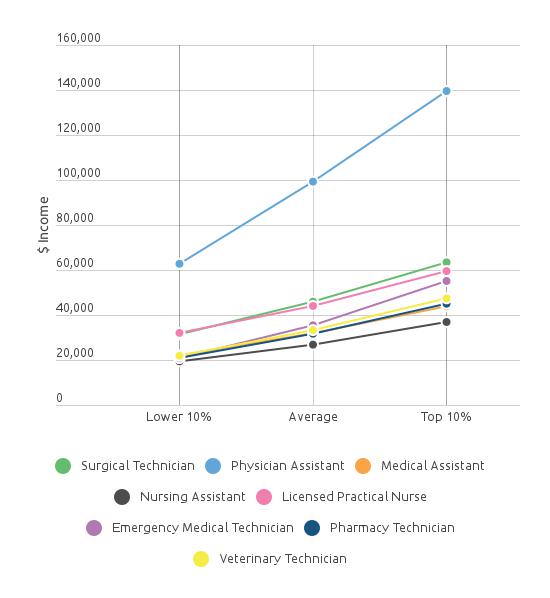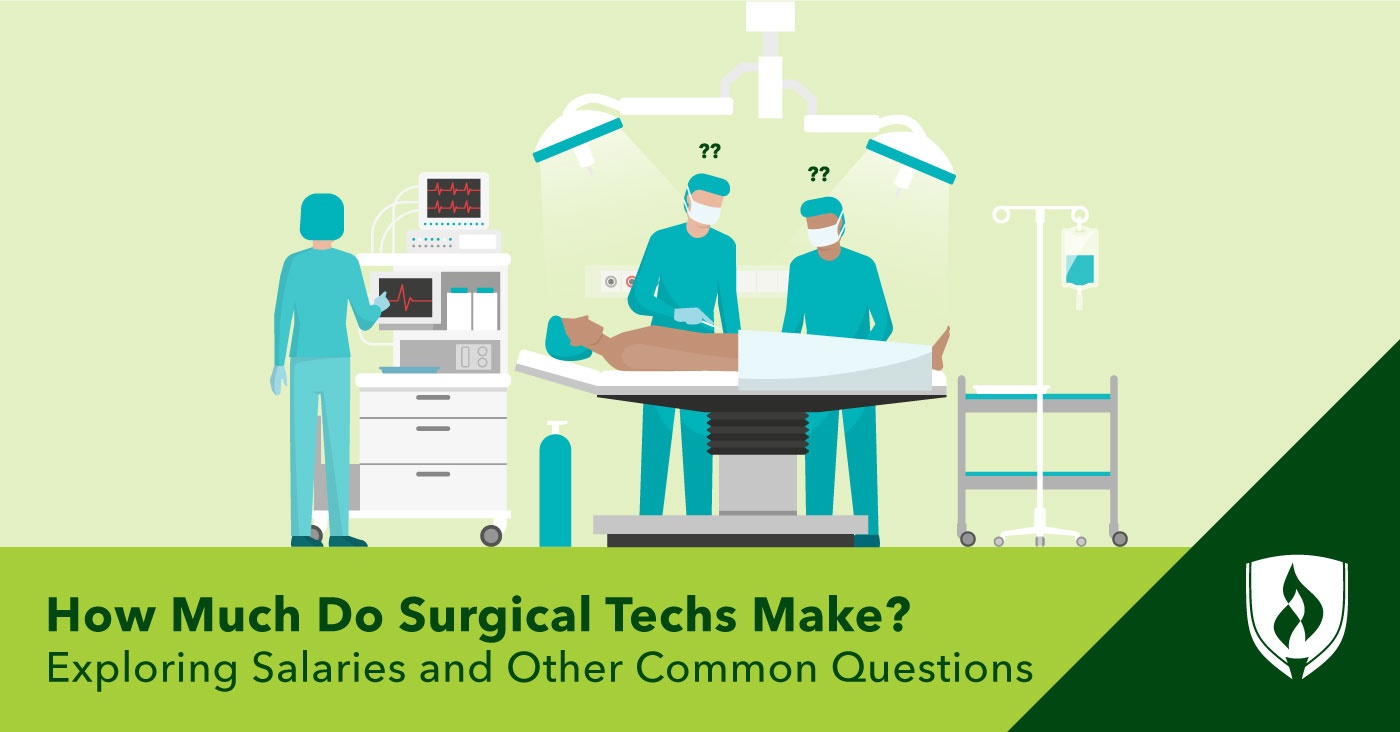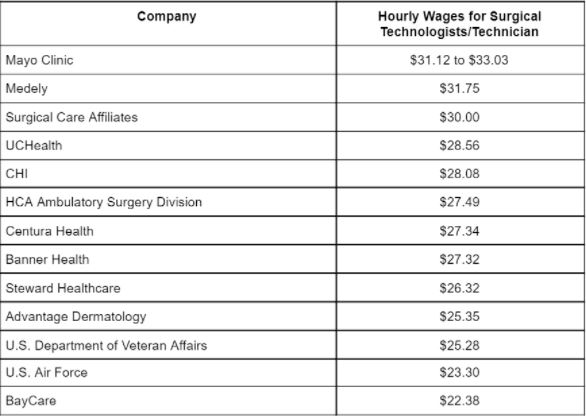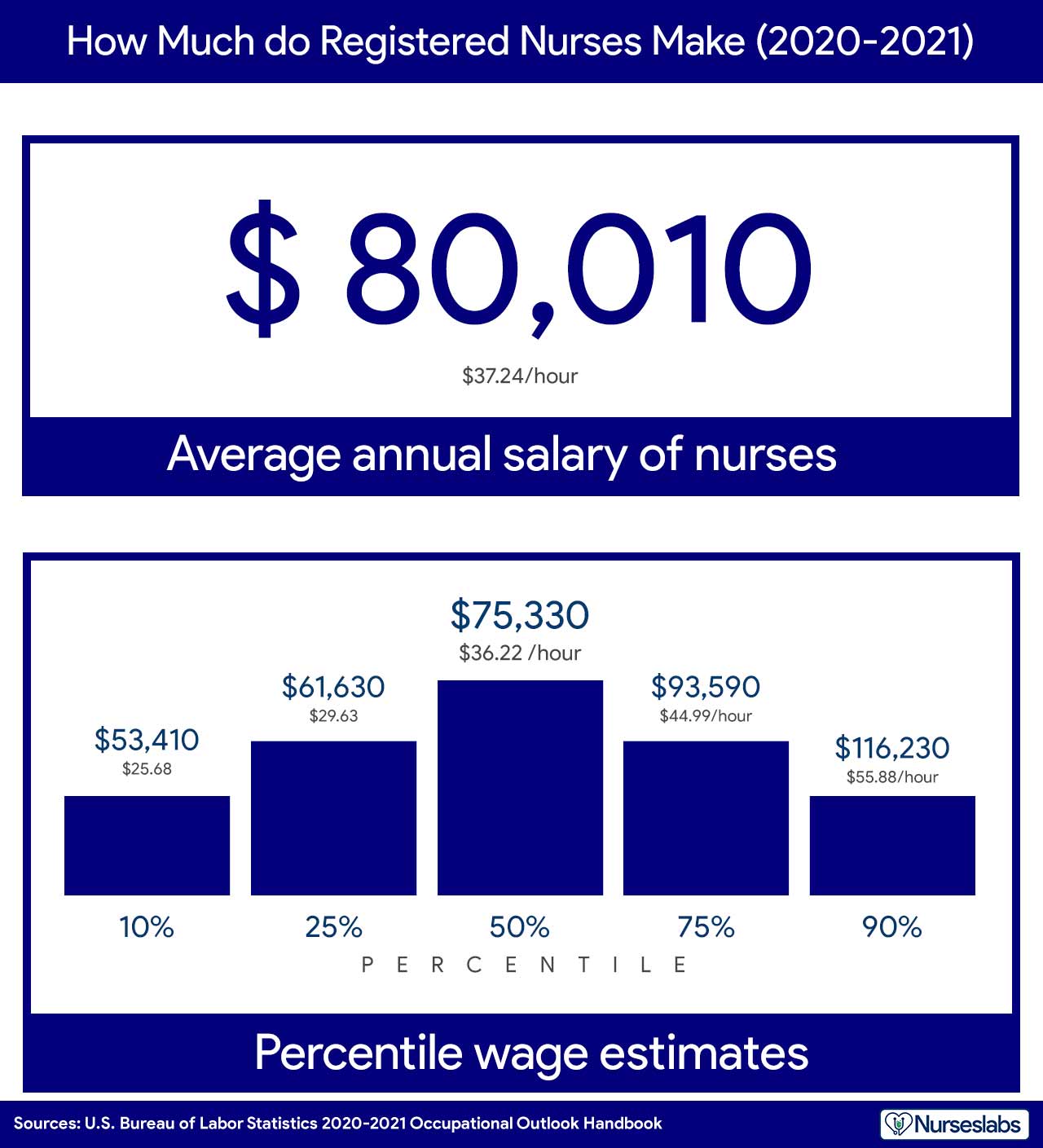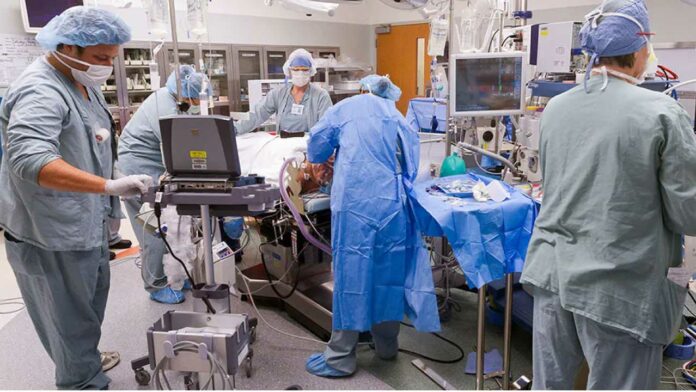How Much Do Surgical Techs Make Hourly
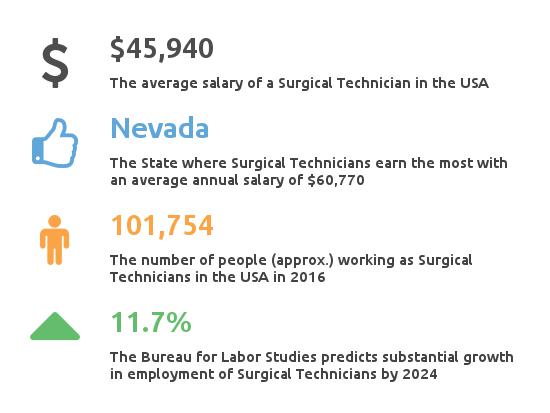
The operating room pulses with a unique energy, a delicate balance between precision and urgency. At the heart of this controlled chaos stands the surgical technician, a vital member of the surgical team. But behind the sterile gowns and specialized instruments lies a question of fair compensation: How much do these essential professionals actually earn per hour?
Understanding the hourly wage of a surgical technician requires dissecting a complex landscape of factors. The Bureau of Labor Statistics (BLS) provides broad salary data, but nuances like experience, location, certifications, and employer type significantly influence take-home pay. This article delves into these factors, offering a detailed look at the current hourly wage landscape for surgical technicians across the United States.
National Averages and Regional Disparities
According to the most recent data from the BLS, the median hourly wage for surgical technologists in May 2023 was $24.29. This figure paints a general picture, but masks the significant variations across different states and metropolitan areas.
For example, states with a higher cost of living, such as California, New York, and Massachusetts, typically offer higher hourly rates to compensate for the increased expenses. Conversely, states in the Southeast or Midwest may have lower average hourly wages, reflecting regional economic conditions.
It's also important to note that metropolitan areas often offer higher wages compared to rural areas. The demand for surgical technicians in major cities, coupled with the presence of large hospital systems and specialized surgical centers, can drive up hourly rates.
Experience, Certification, and Education
Experience is a major determinant of hourly wage for surgical technicians. Entry-level positions naturally command lower pay, while experienced technicians with years of on-the-job training and expertise can negotiate significantly higher hourly rates.
Certification also plays a crucial role. The Certified Surgical Technologist (CST) credential, offered by the National Board of Surgical Technology and Surgical Assisting (NBSTSA), is widely recognized and often required by employers. Holding a CST certification can lead to increased earning potential.
While an associate's degree isn't always mandatory, completing a surgical technology program at a community college or vocational school can enhance job prospects and potentially lead to higher starting wages.
Employer Type and Benefits
The type of employer also influences the hourly wage of a surgical technician. Hospitals, surgical centers, and physician's offices are the primary employers of surgical technologists, and each offers different compensation packages.
Hospitals, particularly large hospital systems, often provide competitive hourly rates and comprehensive benefits packages, including health insurance, retirement plans, and paid time off. Surgical centers may offer slightly lower hourly wages but can compensate with performance-based bonuses or other incentives.
Physician's offices may offer more flexible work schedules but potentially lower hourly wages and fewer benefits compared to hospitals and surgical centers.
The Impact of Demand and Shortages
The healthcare industry is currently facing a shortage of skilled professionals, including surgical technicians. This increased demand can lead to higher hourly wages as employers compete to attract and retain qualified candidates.
Certain surgical specialties, such as cardiac surgery or neurosurgery, may require specialized training and experience. Technicians with these skills are often in high demand and can command premium hourly rates.
The ongoing aging of the population and the increasing complexity of surgical procedures are expected to further drive demand for surgical technicians in the coming years.
Negotiating Your Worth
Understanding the factors that influence hourly wages empowers surgical technicians to negotiate effectively. Researching local market rates, highlighting certifications and experience, and emphasizing specialized skills can all contribute to a successful negotiation.
Many professional organizations, such as the Association of Surgical Technologists (AST), offer resources and salary surveys to help technicians determine their worth and negotiate fair compensation.
It's crucial to consider the entire compensation package, including benefits, paid time off, and opportunities for professional development, when evaluating a job offer.
The Future of Surgical Tech Compensation
The hourly wage for surgical technicians is likely to continue to rise in the coming years, driven by increasing demand and a shortage of qualified professionals. Technological advancements in surgical procedures may also require technicians to acquire new skills, potentially leading to higher earning potential.
As the healthcare industry evolves, surgical technicians will remain an indispensable part of the surgical team. Investing in education, certification, and specialized training will be crucial for maximizing earning potential and ensuring a fulfilling career in this vital field.
Ultimately, understanding the hourly wage landscape empowers surgical technicians to make informed decisions about their career path and negotiate fair compensation for their essential contributions to patient care. The dedicated professionals who ensure the smooth operation of the surgical environment deserve recognition and commensurate pay for their critical skills.




